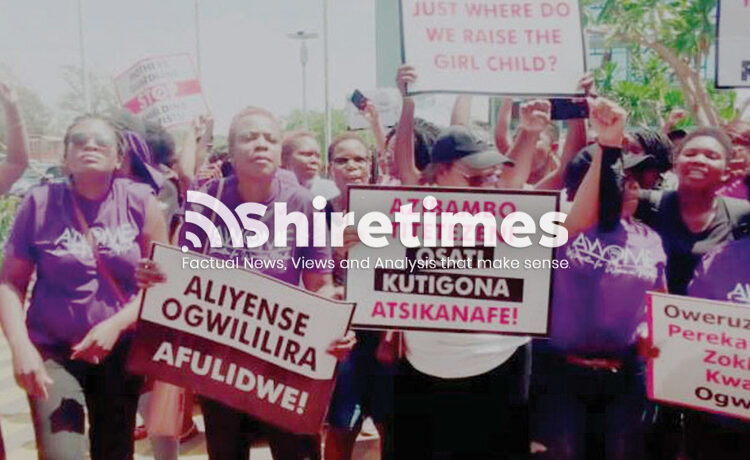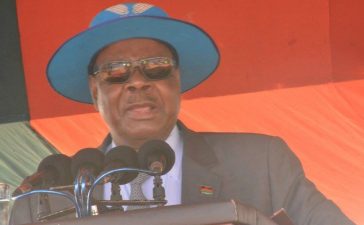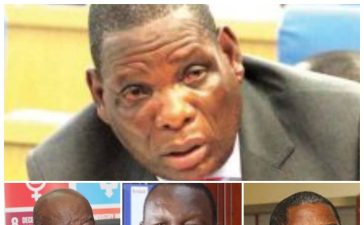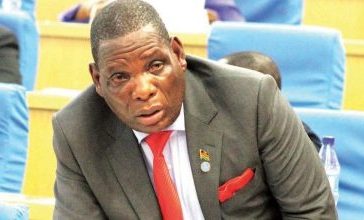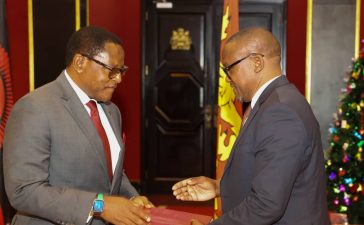The Nsundwe rape case civil settlement has exposed lack of competence in the reigning Registrar of the High Court and Supreme Court of Malawi.
In February 2020, the Women Lawyers Association (WLA) commenced a case on behalf of women and children who were alleged victims of physical and sexual assault allegedly by the Malawi Police Service soldiers in Mpingwe and M’bwatalika villages in Nsunde area. Executing the task of the WLA in Court were four lawyers four lawyers namely Charlotte Wezi Malonda; Hilda Soko; Tadala Chinkhwezule; and Carol Tendai Makoko. The case was popularly reported as Nsundwe rape case.
The WLA announced that this legal representation was going to be ‘pro bono’. This means the victims were not to pay any legal fees in the matter. However, the costs of the litigation were met by well-wishing donors who pooled their resources into the matter for the lawyers to meet their costs.
In July 2020, the Open Society Initiative for Southern Africa (Osisa) through Centre for Human Rights Education Advice and Assistance (CHREAA) released a grant of $50,000 part of which was to carter for legal fees and other logistics of the case. Apart from that, UN Women, Initiative for Strategic Litigation in Africa (Isla) and Tithetse Nkhanza Programme pumped another funding into the litigation of the same matter.
On 13th August 2020, the Court delivered a judgement in favour of the Applicants and among other orders, the Court ordered that the women and children be compensated for the human rights violations they suffered. The trial Court then assigned the Registrar of the High Court and Supreme Court of Appeal to assess the costs to be paid to the victims. The administrative function to assess the costs from a ruling, rests in the Registrar according to High Court Rules.
Exercising the assessment function, the Assistant Registrar, CM. Mandala, billed the costs to K255,684,112.00 (about K255.7 million). What raised public concern on social media is that the victims were awarded K121.5 million in which each allegedly received approximately K5 million while the WLA which announced that it would represent the victims free of charge, was getting away with K255.7 million.
Commenting on the public concerns, several legal minds weighed in with fingers pointing at incompetence, unreasonableness, irregularities, inappropriateness and even immoralities surrounding the billing.
Malawi’s former Attorney General and Minister of Justice, Ralph Kasambara, faulted the Assistant registrar for exhibiting what was described as incompetence.
“The lawyers inflated their claim. The Registrar who was the Taxing Master allowed inflated amount. How is that possible? I suspect the Registrar involved doesn’t have relevant experience in these matters,” Kasambara wrote on his Facebook page.
Former Supreme Court Judge, Justice Dustain Mwangulu, who retired in June this year slammed the Taxing Master saying that “there is a serious disorder. And for such gregarious errors, there seems to be no one keen to ameliorate the injustice. Huge litigation costs are a direct assault on access to justice,” he said. Commenting on the inflates hours that have been claimed by the lawyers for billing, Mwaungulu said “there is no case in Malawi that would exceed 1,000 hours”. The tax bill order shows that the lawyers worked for 1,500 hours which translates into 187 days (slightly over half a year) of nonstop work from morning to dawn, a scenario that justifies the outrage and accusations.
The Malawi Law Society (MLS) has also called out on the women lawyers condemning the award amount. In a statement released on Sunday (8th August 2020), the MLS described the order as ‘unusual’ and ‘unjustified’.
“Subject to what is actually on the Court record (which the Malawi Law Society is yet to examine), the Malawi Law Society considers a total award of K255,684,112.00 unusual and unjustified in a normal Judicial Review case. The award appears contrary to the 13 basic principles of assessing costs as outlined in Order 31 rule 5 of the Courts (High Court) (Civil Procedure) Rules which is the major legal guideline for assessing costs of proceedings in the High Court,” the Statement signed by the MLS President Patrick Mpaka and Secretary Chrispin Ngunde reads.

